
Find Help
More Items From Ergsy search
-

Are there specific banking services more prone to opaque fee structures?
Relevance: 100%
-

Do all banks have the same fee structures?
Relevance: 61%
-

Calls for Greater Transparency in Banking Fees as Complaints Rise
Relevance: 49%
-

Why are some banking fees unexpectedly high?
Relevance: 49%
-

Do online banks have lower fees than traditional banks?
Relevance: 46%
-

How can banks improve transparency regarding their fees?
Relevance: 43%
-

Why is there a call for greater transparency in banking fees?
Relevance: 41%
-

How can government policies influence transparency in banking fees?
Relevance: 41%
-

What initiatives are in place to address banking fee transparency?
Relevance: 41%
-

How does technology help in enhancing transparency in banking fees?
Relevance: 40%
-

What feedback do customers give regarding banking fees?
Relevance: 40%
-

How do banking fees impact financial inclusion?
Relevance: 39%
-
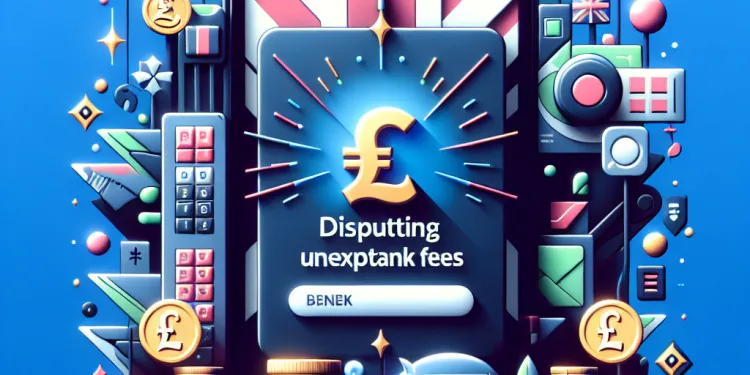
Can customers dispute unexpected banking fees?
Relevance: 38%
-

How can disputes over banking fees be resolved effectively?
Relevance: 38%
-

What fees should I avoid when choosing a new bank?
Relevance: 38%
-
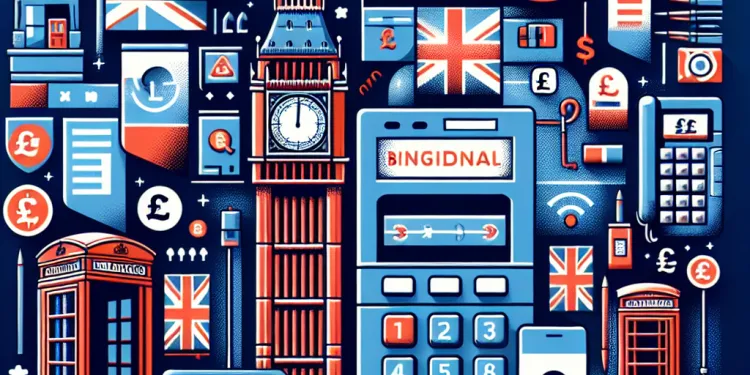
What actions are consumer rights groups taking regarding banking fee transparency?
Relevance: 38%
-
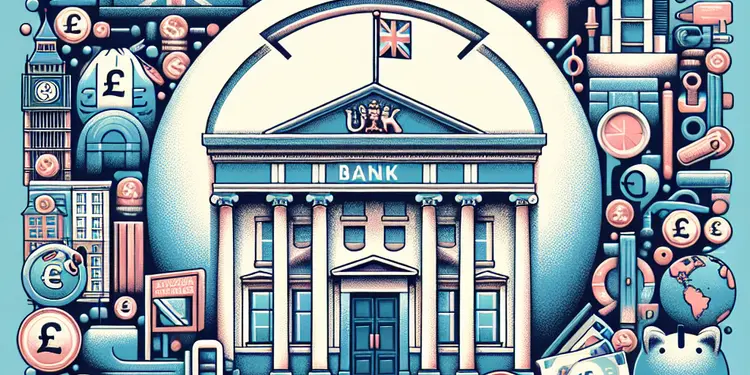
What fees should I avoid when choosing a new bank?
Relevance: 37%
-

How can consumers protect themselves from hidden banking fees?
Relevance: 35%
-
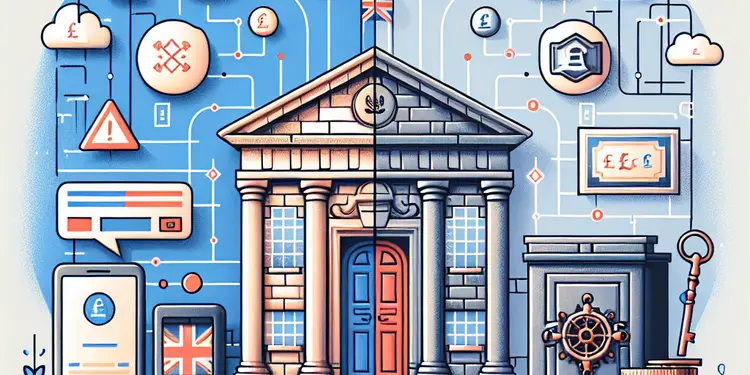
Are online banks cheaper than traditional banks?
Relevance: 34%
-

What are some examples of hidden fees in banking?
Relevance: 34%
-

What role do customer service representatives play in fee transparency?
Relevance: 34%
-

How can I ensure I get better customer service with a new bank?
Relevance: 32%
-
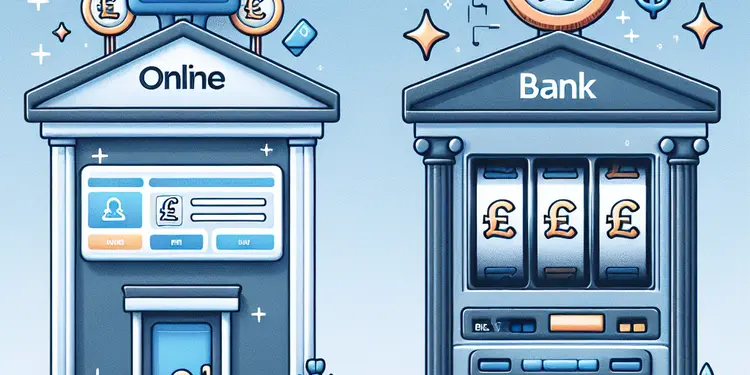
Are online banks cheaper than traditional banks?
Relevance: 32%
-

What's the difference between switching to a credit union versus a bank?
Relevance: 32%
-

What's the difference between switching to a credit union versus a bank?
Relevance: 31%
-

Are there any hidden fees with Monzo or Revolut?
Relevance: 30%
-

Are there any fees to claim money back?
Relevance: 29%
-

How can I ensure I get better customer service with a new bank?
Relevance: 29%
-

How can I compare banks to find the best deal?
Relevance: 29%
-

Can I save money by switching my bank?
Relevance: 29%
-

Are there any hidden fees I should be aware of?
Relevance: 29%
-

How can I compare banks to find the best deal?
Relevance: 29%
-
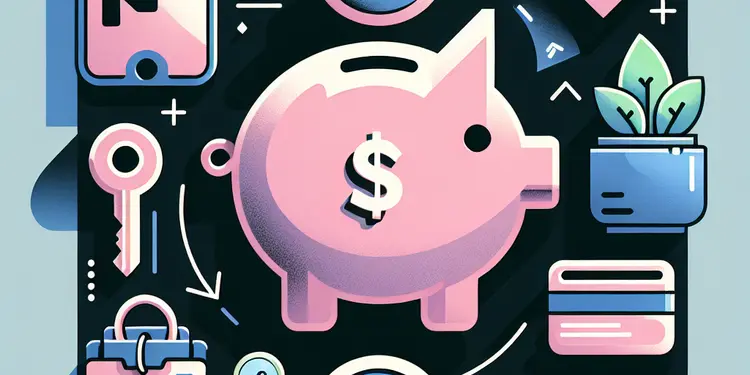
What should I consider when switching banks to save money?
Relevance: 29%
-

Can I save money by switching my bank?
Relevance: 28%
-

Are there benefits to having multiple bank accounts at different banks?
Relevance: 28%
-
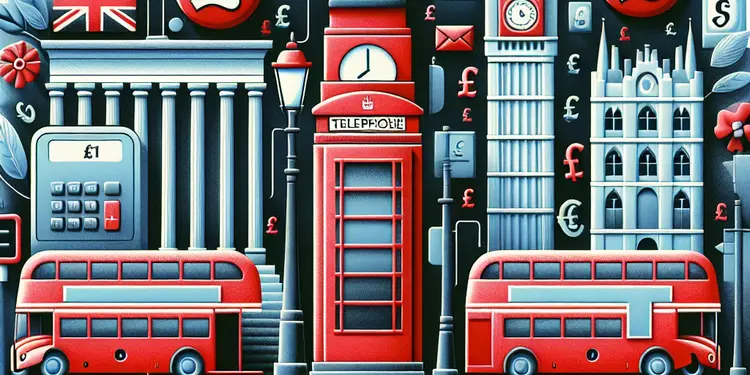
What should I consider when switching banks to save money?
Relevance: 28%
-

Can I save money by switching my bank?
Relevance: 28%
-

Can I use Monzo or Revolut for everyday banking?
Relevance: 27%
-

Are there benefits to having multiple bank accounts at different banks?
Relevance: 27%
-

Can switching banks help me budget better?
Relevance: 27%
Introduction to Banking Fees
Banking fees can be a complex and often opaque aspect of managing personal finances. For many individuals in the UK, understanding these fees is crucial to avoid unexpected charges that can accumulate over time. While some banking services come with transparent fee structures, others are more prone to hidden or less obvious charges.
Common Banking Services with Opaque Fees
Several banking services are especially prone to opaque fee structures. These include overdrafts, foreign transactions, credit card fees, and certain types of loans. Although these services are essential for many consumers, banks may not always clearly disclose all potential charges associated with them.
Overdraft Fees
Overdrafts allow customers to spend more money than they have in their account, up to an agreed limit. While overdrafts can be a useful feature, they often come with complex fee structures. The fees for using an overdraft can include daily or monthly charges, interest on the overdrawn amount, and additional fees for going beyond the agreed limit. These charges can add up quickly, and not all banks provide clear information about how they are calculated.
Foreign Transaction Fees
Using debit or credit cards abroad or making online purchases in foreign currencies can incur additional charges. These foreign transaction fees may include a percentage of the transaction value and a fixed charge. The total cost can be difficult to anticipate as exchange rates can fluctuate, adding another layer of complexity. Some banks offer cards with no foreign transaction fees, but these often come with other conditions or costs.
Credit Card Fees
Credit card users may face various fees beyond interest charges. These can include annual fees, late payment fees, balance transfer fees, and cash advance fees. Each type of fee comes with its own terms and conditions, which are not always fully disclosed or easy to understand. Customers should carefully review the terms of any credit card agreement to be aware of these potential charges.
Loan and Mortgage Fees
Loans and mortgages often have complex fee structures that can be difficult to navigate. Setup fees, early repayment charges, and variable interest rates are just a few examples of what borrowers might encounter. Lenders might not always highlight these fees upfront, making it important for prospective borrowers to scrutinize the terms closely.
Conclusion
In conclusion, while many banking services appear straightforward, the fee structures behind them can often be opaque. Overdrafts, foreign transactions, credit cards, and loans are particularly prone to hidden or complex fees. UK consumers should remain vigilant, carefully reviewing all terms and conditions, and ideally consult with their bank to understand all potential charges. By doing so, consumers can better manage their finances and avoid unexpected costs.
Introduction to Banking Fees
Banking fees are charges you might have to pay for using the bank services. It's important to know about these fees so you don't get surprised by extra charges. Some fees are easy to see, but others can be hidden and tricky.
Common Banking Services with Hidden Fees
Some bank services have hidden fees. These include overdrafts, spending in other countries, credit card costs, and some loans. Even though people use these services a lot, banks might not always tell you about all the extra charges.
Overdraft Fees
An overdraft lets you spend more money than you have in your bank account, up to a certain limit. This can be helpful, but it can also be expensive. Banks may charge you every day or month, plus extra costs if you spend too much. These charges can add up quickly, and not all banks explain them clearly.
Foreign Transaction Fees
If you use your card in another country or buy things online in another currency, you might have to pay extra. These foreign transaction fees can include a part of the money you spent, plus a fixed fee. Because exchange rates change, it's hard to know how much it will cost. Some banks have cards with no foreign fees, but there may be other costs instead.
Credit Card Fees
When you use a credit card, there are fees besides the interest you pay. These can include yearly fees, late payment fees, fees for moving your debt to another card, and cash advance fees. Each type of fee has its own rules, and they're not always easy to understand. Make sure to read the credit card rules carefully so you know about these fees.
Loan and Mortgage Fees
Loans and mortgages can have complicated charges. There can be fees to set them up, charges for paying them off early, and interest rates that change. Sometimes lenders don't tell you about these upfront, so it's important to read the terms carefully.
Conclusion
In conclusion, many banking services seem simple, but their fees can be hidden or complicated. Overdrafts, foreign spending, credit cards, and loans often have these tricky fees. It's important for people in the UK to read all the bank's rules carefully and ask the bank if they don't understand something. This helps you manage your money better and avoid surprises.
Frequently Asked Questions
What are opaque fee structures in banking services?
Opaque fee structures refer to hidden or unclear fees in banking services, making it difficult for customers to understand the cost of the services they are paying for.
Which banking services are most commonly associated with opaque fees?
Banking services like overdraft protection, foreign transactions, credit card late payments, and certain types of loans often have opaque fee structures.
Why do banks have opaque fee structures for some services?
Banks may have opaque fee structures to increase revenue, as customers might not be aware of the full cost of a service until after the fact.
How can customers identify opaque fee structures in banking?
Customers can look for vague or non-specific terms in agreements, ask for a detailed fee breakdown, and read bank statements carefully to identify hidden fees.
Are overdraft fees an example of opaque fee structures?
Yes, overdraft fees are often opaque as banks may not clearly disclose how and when these fees are applied.
Can opaque fees lead to customer dissatisfaction?
Yes, customers often feel deceived or frustrated when they discover unexpected fees, which can lead to dissatisfaction and mistrust in the bank.
Are credit card fees sometimes opaque?
Yes, credit card fees such as balance transfer fees, foreign transaction fees, and late payment fees can be opaque if not clearly communicated to the customer.
How do hidden fees affect banking competition?
Hidden fees can distort competition, as consumers may choose a bank based on apparent low costs without realizing the full expense due to hidden charges.
What measures can banks take to reduce opaque fees?
Banks can improve transparency by clearly disclosing all fees upfront, using straightforward language, and educating customers about potential charges.
Do online banking services have opaque fee structures?
Some online banking services may still have opaque fees, although many online banks strive to reduce hidden costs by offering more transparency in their fee structures.
Are loan-related fees often opaque?
Yes, fees related to loans, such as origination fees, processing fees, and early repayment penalties, can often be opaque.
How can technology help reduce opaque fee structures?
Technology can offer greater transparency by providing real-time fee notifications, detailed digital statements, and easy access to fee schedules online.
Is fee disclosure regulated by law?
In many jurisdictions, banks are required by law to disclose fees, but the complexity and timing of these disclosures can still make fees appear opaque.
Are there any banking services that are less likely to have opaque fees?
Basic savings and checking accounts are less likely to have opaque fees compared to more complex financial products.
Do fintech companies offer more transparent fee structures?
Many fintech companies emphasize transparency and may offer clearer fee structures compared to traditional banks, but it's important to review each company's policies.
What role does customer education play in preventing issues with opaque fees?
Customer education is crucial, as informed customers can better understand their options and identify potential hidden fees before committing to a service.
How do foreign transaction fees contribute to opaque fee structures?
Foreign transaction fees can be opaque if banks do not clearly explain how they are calculated or when they are applied.
What are some common examples of hidden fees in banking?
Common hidden fees include maintenance fees, transaction fees, ATM fees, and annual fees that are not clearly listed or explained upfront.
Can consumers take action against opaque fee structures?
Consumers can file complaints with regulatory bodies, switch to more transparent banks, and use financial education resources to better understand fee structures.
Are there tools available to help consumers compare banking fees?
Yes, there are comparison websites and tools that allow consumers to compare bank fees and services in order to make more informed decisions.
What are hidden fees in banking?
Banks sometimes have hidden fees. This means they charge money in ways that are not easy to see or understand.
If you don't know about these fees, you might pay more money than you expect.
Here are some tips to help you:
- Ask the bank to explain all the fees clearly.
- Check your bank statements regularly.
- Use a calculator to keep track of your money.
- Talk to someone you trust if you don't understand something.
Opaque fee structures mean hidden fees or hard-to-understand costs in bank services. This makes it hard for people to know how much money they're paying.
Which bank services have hidden costs?
Bank services like using ATMs, transferring money, and checking accounts might have costs you can't see easily. These are called hidden costs.
Here are some tips to help you understand these costs:
- Ask someone at the bank to list all possible fees.
- Look for a booklet or website that explains fees in simple words.
- Use online tools or apps that help show bank fees in a clear way.
Banks have things like letting you spend more than you have (overdraft protection), buying things in other countries (foreign transactions), paying credit card bills late, and some kinds of loans. These things can have confusing fees.
Why do banks have confusing fees?
Banks sometimes use tricky words for their fees. This means it's hard to know what you are paying for. Some tips to help: - Ask a bank worker to explain fees - Look online for clear guides - Use apps that help you understand money betterBanks might have confusing fees to make more money. Customers often don't know the full cost until later.
Here are some tips to help:
- Ask the bank questions if you don't understand the fees.
- Use online tools to learn more about bank fees.
- Keep track of your bank statements.
How can people find hidden fees in banks?
Banks sometimes have hidden fees. Here's how you can find them:
- Ask the bank worker. Say, "Can you tell me all the fees?"
- Read the papers carefully. Look for words like "fees" or "charges".
- Use a calculator to add up any costs.
- Ask a friend or family member to help you understand.
If you need help, you can use tools like text-to-speech apps to read the information out loud. This can make things easier to understand.
Customers can look out for words in agreements that are not clear, ask for a list of all the fees, and read bank statements carefully to find hidden fees.
Are overdraft charges hard to understand?
Yes, it can be hard to understand overdraft fees because banks do not always tell you clearly when they will charge these fees.
Do hidden costs make customers unhappy?
Yes, people can feel tricked or upset when they find extra fees they didn't know about. This can make them unhappy and stop trusting the bank.
Are credit card fees hard to understand?
Credit card fees can be tricky. Sometimes, it's not clear what you are paying for.
Here are some tips to help:
- Ask someone you trust to explain.
- Use a calculator to see how much things cost.
- Look for videos or pictures that explain credit card fees.
Yes, credit card charges like moving your balance, using your card in another country, and paying late can be confusing if they are not explained clearly to you.
How do hidden fees affect banks competing with each other?
Hidden fees are extra costs that banks don't tell you about at first.
These fees can change how people choose their bank.
When banks have hidden fees, they might seem cheaper than they are.
This can make it hard to compare banks.
People might choose a bank with hidden fees without knowing it costs more.
Some tools that can help:
- Online calculators: Help you see the real costs.
- Bank reviews: Other people's stories about their banks.
Hidden fees are extra costs that people might not know about. These can make it hard for people to compare banks properly. People might pick a bank that looks cheap, but they might end up paying more because of hidden fees.
How can banks make fees clearer for everyone?
Banks can be clearer by showing all costs at the start, using simple words, and teaching customers about possible extra charges.
Do online banks have fees that are hard to understand?
Online banks sometimes charge fees. These fees can be tricky to understand. Do you think online banks make it easy to see and understand these fees?
Here are some tips to help:
- Look for banks that explain their fees clearly.
- Use tools like fee calculators to help you see all costs.
- Ask someone you trust to help you if you're unsure.
Some online banks might still have fees that are not clear. But many online banks try to make their fees easy to understand. They want to show you what you are paying for.
Are loan fees hard to understand?
Yes, fees that come with loans, like starting fees, processing fees, and penalties for early repayment, can often be hard to understand.
Here are some tips to help you:
- Ask your bank or loan company to explain the fees in simple words.
- Use a calculator or a friend to help you see what the fees mean in money.
- Look for videos online that explain these fees clearly.
How can technology help people understand hidden costs?
Technology can help people see all costs clearly. It can show the cost in a simple way.
Here are some ways technology can help:
- Phone Apps: These apps can show you all costs. They are easy to use.
- Websites: Websites can give clear cost details. You can see everything you need.
- Online Calculators: These tools can help you add up costs. They show the total amount.
Using these tools can make it easier to understand all fees. If you need help, ask someone you trust.
Technology can help people see things clearly. It can show you fees right away, give you detailed digital statements, and let you easily check fee lists online.
Does the law say how fees must be shown?
Yes, there are rules that say how fees should be shown. These rules help people know what they are paying for. To make sure you understand, ask someone to explain or use a tool that reads out loud.
Banks must tell people about fees because of the law. But sometimes the way they tell people can be confusing or hard to understand.
Which bank services have clear fees?
Basic savings and checking accounts are simple. They usually do not have hidden fees like more complicated money products do.
Do fintech companies show their fees clearly?
Fintech companies are money businesses that use technology.
They should tell you clearly how much things cost.
If you are not sure about their fees, you can:
- Ask someone to help you read the information.
- Use a calculator to check the costs.
- Look for simple words on their website.
This way, you can understand better what you will pay.
Lots of money companies on the internet try to be clear and open about their fees. This can make understanding the costs easier than with normal banks. But you should still check what each company says about their fees.
How does teaching customers help stop problems with hidden fees?
Teaching people about costs they might not see can help stop confusion.
Here are some tools that help:
- Simple guides or videos explaining fees.
- Clear cost lists when buying things.
This way, everyone knows what they are paying for. It makes things fair.
It is important to teach customers. When they know more, they can understand their choices. They can also find hidden costs before saying yes to a service.
How do foreign transaction fees make it hard to see all the costs?
Foreign transaction fees are extra charges you pay when using your card in another country. Sometimes, it's hard to see all the fees because they are not always clearly shown. Here are some ways to make it easier:
- Ask your bank or card company to explain all the fees.
- Use a calculator to add up the fees before you pay.
- Look at your bank statements closely to see what fees you paid.
Using these tips can help make sure you know what you are paying.
Foreign transaction fees might be hard to understand if banks don't clearly say how they work or when they charge them.
To help, you can:
- Ask the bank to explain the fees in simple words.
- Use online tools that help you understand money better.
- Talk to someone you trust who knows about money, like a family member or friend.
What are hidden fees in banking?
Hidden fees are charges that you might not see right away. They are extra costs you pay the bank. Here are some examples:
- ATM Fees: You might pay when you use a different bank's ATM.
- Account Maintenance Fees: You might pay every month to keep your account open.
- Overdraft Fees: You might pay if you spend more money than you have in your account.
- Early Withdrawal Fees: You might pay if you take money out of your savings account too soon.
To help understand these fees, you can:
- Ask your bank to explain all the charges.
- Read your bank statements carefully.
- Use online tools that show any extra fees.
Sometimes there are extra costs that people don't know about. These can be:
- Fees to keep an account running.
- Fees every time you use the account to pay for something.
- Fees for using an ATM to take out money.
- Fees you pay once a year that are not clearly shown when you first sign up.
Try using a budget app to keep track of your spending. This can help you see all the costs.
Can people do something about hidden fees?
When we pay for something, sometimes there are extra fees we don't see right away. These are called hidden fees. Here's how you can handle them:
- Ask Questions: Always ask if there are extra costs before you buy.
- Read Carefully: Take your time to read any paper or screen that tells you about costs.
- Use a Calculator: Add up the costs to make sure you know the total price.
- Get Help: Ask a friend or family member to help you understand the fees.
These steps can help you be ready and know what you will pay.
If you are not happy with your bank, you can ask for help. Here are three things you can do:
- You can tell the people in charge about your problem.
- You can choose a bank that is easy to understand.
- Learn about money to understand how bank fees work.
These steps can help you feel more in control of your money.
Are there tools to help people compare bank fees?
Yes. There are tools that make it easy to compare how much banks charge. Some of these tools are online, like websites or apps. They can help you see the different fees from banks.
Here are some tips to help you:
- Use websites that compare bank fees.
- Try apps that help choose the best bank.
- Ask someone you trust to help you with bank questions.
These tools and tips can help you pick the best bank for you.
Yes, there are websites and tools that help people compare bank fees and services. These can help you choose the best options for you.
Useful Links
This website offers general information and is not a substitute for professional advice.
Always seek guidance from qualified professionals.
If you have any medical concerns or need urgent help, contact a healthcare professional or emergency services immediately.
Some of this content was generated with AI assistance. We’ve done our best to keep it accurate, helpful, and human-friendly.
- Ergsy carfully checks the information in the videos we provide here.
- Videos shown by Youtube after a video has completed, have NOT been reviewed by ERGSY.
- To view, click the arrow in centre of video.
- Most of the videos you find here will have subtitles and/or closed captions available.
- You may need to turn these on, and choose your preferred language.
- Go to the video you'd like to watch.
- If closed captions (CC) are available, settings will be visible on the bottom right of the video player.
- To turn on Captions, click settings .
- To turn off Captions, click settings again.
More Items From Ergsy search
-

Are there specific banking services more prone to opaque fee structures?
Relevance: 100%
-

Do all banks have the same fee structures?
Relevance: 61%
-

Calls for Greater Transparency in Banking Fees as Complaints Rise
Relevance: 49%
-

Why are some banking fees unexpectedly high?
Relevance: 49%
-

Do online banks have lower fees than traditional banks?
Relevance: 46%
-

How can banks improve transparency regarding their fees?
Relevance: 43%
-

Why is there a call for greater transparency in banking fees?
Relevance: 41%
-

How can government policies influence transparency in banking fees?
Relevance: 41%
-

What initiatives are in place to address banking fee transparency?
Relevance: 41%
-

How does technology help in enhancing transparency in banking fees?
Relevance: 40%
-

What feedback do customers give regarding banking fees?
Relevance: 40%
-

How do banking fees impact financial inclusion?
Relevance: 39%
-

Can customers dispute unexpected banking fees?
Relevance: 38%
-

How can disputes over banking fees be resolved effectively?
Relevance: 38%
-

What fees should I avoid when choosing a new bank?
Relevance: 38%
-

What actions are consumer rights groups taking regarding banking fee transparency?
Relevance: 38%
-

What fees should I avoid when choosing a new bank?
Relevance: 37%
-

How can consumers protect themselves from hidden banking fees?
Relevance: 35%
-

Are online banks cheaper than traditional banks?
Relevance: 34%
-

What are some examples of hidden fees in banking?
Relevance: 34%
-

What role do customer service representatives play in fee transparency?
Relevance: 34%
-

How can I ensure I get better customer service with a new bank?
Relevance: 32%
-

Are online banks cheaper than traditional banks?
Relevance: 32%
-

What's the difference between switching to a credit union versus a bank?
Relevance: 32%
-

What's the difference between switching to a credit union versus a bank?
Relevance: 31%
-

Are there any hidden fees with Monzo or Revolut?
Relevance: 30%
-

Are there any fees to claim money back?
Relevance: 29%
-

How can I ensure I get better customer service with a new bank?
Relevance: 29%
-

How can I compare banks to find the best deal?
Relevance: 29%
-

Can I save money by switching my bank?
Relevance: 29%
-

Are there any hidden fees I should be aware of?
Relevance: 29%
-

How can I compare banks to find the best deal?
Relevance: 29%
-

What should I consider when switching banks to save money?
Relevance: 29%
-

Can I save money by switching my bank?
Relevance: 28%
-

Are there benefits to having multiple bank accounts at different banks?
Relevance: 28%
-

What should I consider when switching banks to save money?
Relevance: 28%
-

Can I save money by switching my bank?
Relevance: 28%
-

Can I use Monzo or Revolut for everyday banking?
Relevance: 27%
-

Are there benefits to having multiple bank accounts at different banks?
Relevance: 27%
-

Can switching banks help me budget better?
Relevance: 27%


